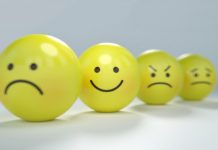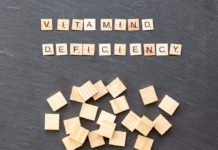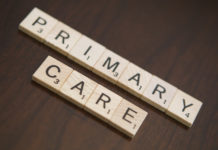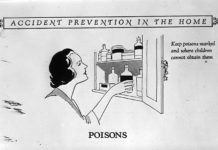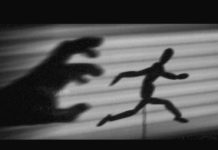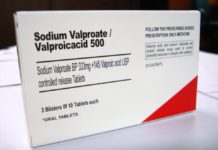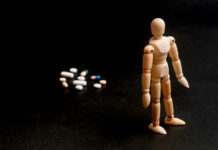Challenging Resilience as a Buzzword: Toward a Contextualized Resilience Model
Researcher Dr. Silke Schwarz highlights how Western psychology’s construction of individual resilience deflects emphasized individual pathology and deflects efforts at structural change.
Memoirs of a Dissident Psychiatrist
For years I had hoped that psychiatry would free itself from the psychoanalytic doctrine, and when my wish finally came true, my profession went from the frying pan to the fire. My main goal, currently, is to convince professionals as well as the public that most child psychiatric problems can be handled effectively without medication.
Process Oriented Approaches to Altered and Extreme States of Consciousness
When John Herold went to see a Process Work counselor, they talked about how his experience of extreme states had been disruptive in his life, but how these states also had value. The counselor compared John's experience with drinking an entire bottle of Tabasco sauce all at once. Why not instead, the counselor suggested, "try being just a little psychotic all the time?"
Study Finds First-Episode Psychosis Patients Fare Better with Vitamin D
Researchers examine the relationship between vitamin D and clinical and cognitive symptoms in first-episode psychosis.
Exploring the Tension Between Educational Psychology and Child Psychiatry
Researchers explore efforts to integrate educational psychology and child psychiatry.
Hallucinations Reported as Side Effect of ADHD Medication
Hallucinations and other psychotic symptoms have been reported after methylphenidate (Ritalin) treatment for ADHD.
Researcher Critically Examines Movements for Global Mental Health
China Mills raises concerns that global mental health movements obscure social determinants of health and naturalize Western mental health concepts.
Adolescent Suicide and The Black Box Warning: STAT Gets It All Wrong
STAT recently published an opinion piece arguing that the black box warning on antidepressants has led to an increase in adolescent suicide.
It is easily debunked, and reveals once again how our society is regularly misled about research findings related to psychiatric drugs. STAT has lent its good name to a false story that, unfortunately, will resonate loudly with the public.
Research Emphasizes Association Between Inflammation, Diet, and Depression
Study finds adults with a pro-inflammatory diet have a greater incidence of depression.
What Stops People From Using Exercise to Treat Depression?
New research examines important factors of adherence when prescribing exercise to treat depression.
Review Examines Causes and Consequences of Overdiagnosis in Primary Care
A new review in BMJ investigates overdiagnosis in primary care settings, where the majority of mental health care is provided in the U.S.
Large Increase in Poison Control Calls for Children Taking ADHD Drugs
New data shows that calls to US poison control centers have increased significantly for children taking stimulant ADHD drugs.
Prolonged Exposure Reduces Dropout Rates and Symptoms for Individuals with Complex Trauma
New study finds that intensive prolonged exposure is a promising treatment option for individuals with multiple trauma experiences.
Waiting for Gravity
Of course one wishes for an easy answer, but the things that conspire to drive a person over the edge are too numerous and varied ever to point and say, it was this one; one can never really be so certain. No one can say it wasn’t that one, or that it wasn’t really all of those together, or that, when it came my own turn for “insanity,” I wasn’t standing halfway over the edge already, waiting for gravity to kick in and for me to fall.
SSRI Exposure in Pregnancy Alters Fetal Neurodevelopment
Alterations in gray matter and white matter development found in infants of mothers taking SSRI antidepressants during pregnancy.
Can Education Level Predict Prescription Drug Misuse in Young Adults?
A new study examines the extent to which patterns in prescription drug misuse and substance use disorder symptoms can be predicted by education level
Catching My Breath After A Panicked Journey
$24,000 later and no one knew what was wrong with me. They sent me home with a bag of pills. After being in the hospital, I developed a fear and mistrust of doctors. My general practitioner suggested antidepressants. More pills. It was all they could recommend. I wouldn’t take them. My anxiety worsened. I was obsessed with the idea that if I slept, I would die. So, I stayed awake as much as I could. For an entire year, this was how I lived.
A Time For Rain: Teaching Our Children About Sadness
The only way out of the epidemic of feeling-people-turned-medicated-psychiatric-patients is to rebrand and reframe feeling as a cultural collective. And I believe it starts with our messaging as parents and our orientation toward shadow elements like anger and sadness. We have to model a conscious relationship to our own dark parts, and we have to show our children what it looks like to move through these spaces. Feelings can be messy, wild, and sometimes ugly to our constrained sensibilities.
Call to Monitor Adverse Effects of Antipsychotics in Youth
Researchers point to the risks of using antipsychotics with youth and caution against the practice.
Digital Media Use Linked to Increase in ADHD Symptoms
Increased frequency of digital media use can increase symptoms of ADHD among adolescents, study finds.
Study Shows Success With Reduced Antipsychotic Use
People who reduced antipsychotic use by tapering were doing just as well after five years as those who continued using the drugs.
Valproate Linked to Decreased Brain Volume in Children Diagnosed with Bipolar Disorder
Researchers find that valproate decreases brain volume in a region associated with emotion processing across all participants.
Study Explores Pain Assessment for Medically Complex, Nonverbal Children
To what extent are healthcare providers equipped to assess nuance in the experiences of pain among nonverbal children?
Researchers Can’t Predict Whether Childhood ADHD Will Impact Adult Functioning
New research has found that a childhood ADHD diagnosis is not predictive of adult functioning in boys.
Suicide in the Age of Prozac
During the past twenty years, the American Foundation for Suicide Prevention and American psychiatry have adopted a "medicalized" approach to preventing suicide, claiming that antidepressants are protective against suicide. Yet, the suicide rate in the United States has increased 30% since 2000, a time of rising usage of antidepressants. A review of studies of the effects of mental health treatment and antidepressants on suicide reveals why this medicalized approach has not only failed, but pushed suicide rates higher.

